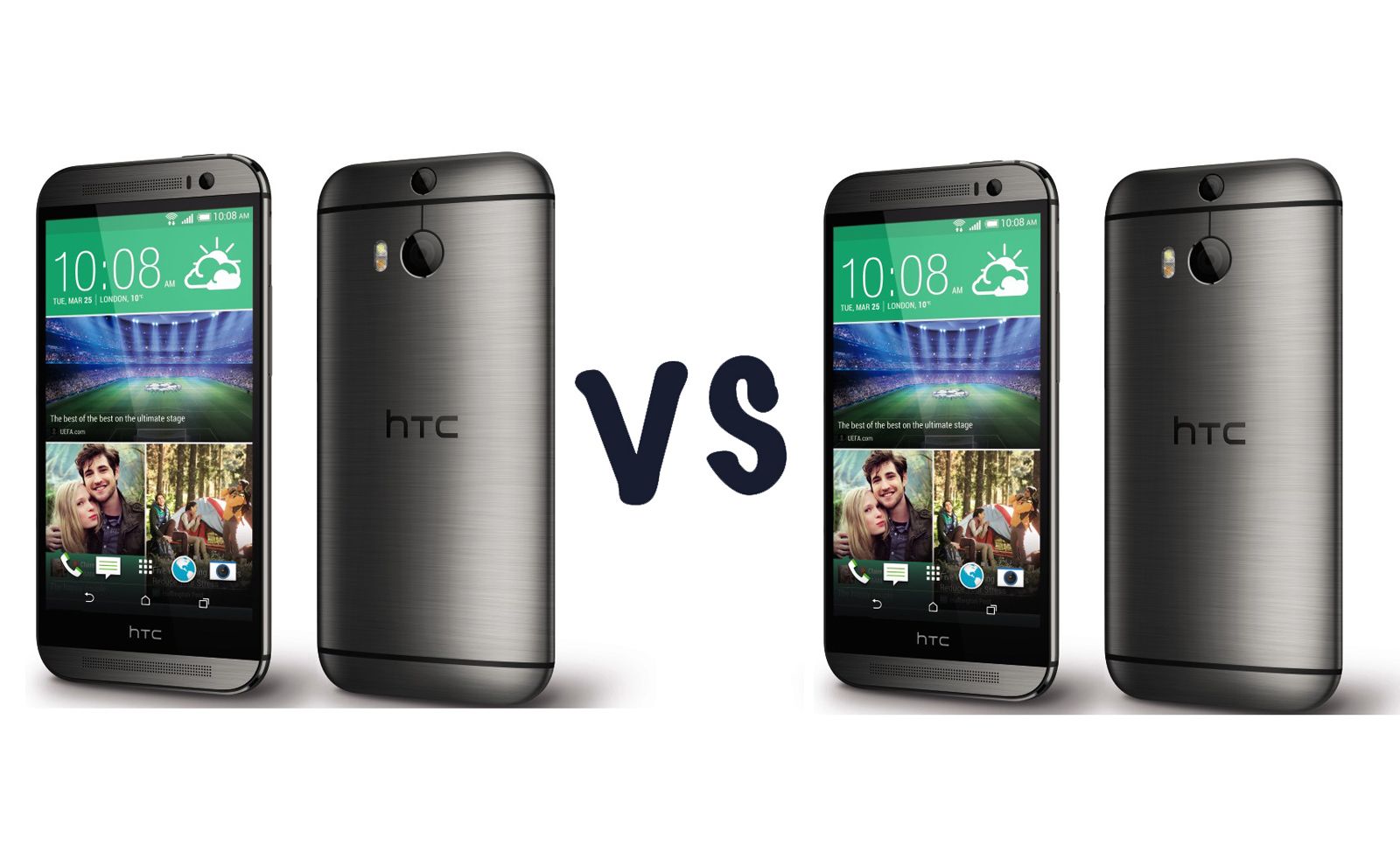There's a new M8 in town, which might have caught you by surprise, as HTC has only just launched a new flagship, the HTC One M9.
However, the HTC One M8s isn't a rival to the top phone on the spec sheet, even if it does come with the stunning design of one of 2014's best handsets.
On the surface things are very much the same - identical to look at - so what's the difference between these two phones. Should you be trying to get your hands on the older One M8, or the new One M8s? In short, just what is the difference?
Design and build: The same
The good news is that the M8s and the M8 share the same design. That means you get the full metal unibody, with that lovely comfortable feel in the hand, one of the best pieces of smartphone design we've seen. It also comes in the same colours - gunmetal grey, silver and gold.
The M8s appears identical to the M8. If you're trying to pass off a cheaper handset as the more expensive, then you'll get away with it. We've spotted that the M8s is 146.41 x 70.61 x 9.55mm, fractionally larger than the 146.36 x 70.6 x 9.35 mm. The weight is the same at 160g.
Internals: M8s is 64-bit, larger battery
The HTC One M8s has a 64-bit octo-core Qualcomm Snapdragon 615 chipset with 2GB of RAM. The original HTC One M8 had a quad-core Qualcomm Snapdragon 801 chipset with 2GB of RAM.
The newer model has newer hardware. The 615 is an octo-core chipset and is 64-bit compatible, so should offer greater efficiencies in power use, even if it's not as high level as the 801. It's designed for the mid-range, but is a solid performer.
The HTC One M8s has a 2840mAh battery, an increase in capacity over the 2600mAh of the M8. That should lead to slightly better endurance, but much will come down to how the hardware performs.
Until we get the One M8s in the hand, we can't categorically state which will be the faster, we suspect the experience will be similar. The M8s may even have better stamina.
Display: Glory all round
We love the HTC One M8 display. It is sharp, clear, punchy with colours and a good size at 5 inches.
The HTC One M8s offers the same size and the same resolution at 1920 x 1080 pixels, 440ppi. We'd expect the same experience from this panel, whichever you choose.
Cameras: 13-megapixel step-up
The HTC One M8's biggest downfall was the camera. It introduced the Duo Camera setup with two lenses, using the UltraPixel 4MP sensor to capture images.
The new HTC One M8s swaps the UltraPixel sensor for a regular 13-megapixel sensor, but keeps the Duo Camera arrangement. That means it should offer all the innovative functions of the M8, without the limit on resolution.
The UltraPixel was a pretty good low light performer and the M8s will potentially lose this - it really comes down to how the 13MP sensor is handled. For some, the increased resolution will be a bonus. Sadly neither offers 4K video capture.
The front camera on both is the same at 5 megapixels.
Software: Lollipop at launch
The HTC One M8s launches with Android 5 Lollipop and HTC Sense 6. Although you're getting the latest from Android, you're not getting Sense 7 which launched on the M9.
The HTC One M8 launched originally on KitKat, but was subsequently updated to Lollipop in early 2015. We'd expect the software functions to be the same, but really we'd want both updated to Sense 7 for the latest experience from HTC.
Price: One M8s is cheaper
The HTC One M8 launched at £579 in 2014 and is still listed at that price on HTC.com, the HTC One M8s is launching at £379, although availability is still to be confirmed.
If you look beyond HTC's retail channel, you can find the One M8 at more competitive prices, but in many cases it's still close to £500. That makes the HTC One M8s an attractive prospect: it's the same prices as the One mini 2, and much more of a phone. If you're choosing between the M8s and the more expensive M8, we'd take the new handset and pocket the change.
What's the difference between a duck?
The HTC One M8 and M8s are very similar, but a new attractive price point and a change in battery and camera are on offer in the M8s. If you'd been struggling to justify the expense of the M8, it could be just the phone for you.
We suspect that the M8s will offer performance that's close to the M8 even after the change in hardware. It might be less powerful, but the return could be greater endurance. Until we test the device thoroughly, we can't say.
The change in cameras could be a great thing, but it really depends on how HTC handles the captured data: greater resolution doesn't automatically mean better photos and the trade-off might be in low light performance.
We'll bring you a review of the HTC One M8s as soon as we can.

